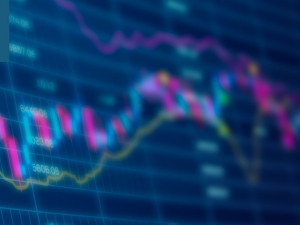
Sunak drives G7 taxation agreement
Morning mid-market rates – The majors
7th June: Highlights
- Reopening still on the edge
- Disappointing NFP means no tapering yet
- Sentiment data unlikely to drive ECB
Are we going to experience permanent inflation?
The right rate appears to be 15%.
However, it is clear that the deal was in fact cooked up by the U.S, so they will benefit the most. Furthermore, if you plan to add taxation, and those about to be taxed welcome the move, clearly, the rate is far from draconian.
The G7 meeting will take place in Cornwall this weekend and will concentrate on vaccinating the world, climate change, and how to cooperate to ensure that the recovery from Covid-19 is robust globally.
Sir Jon Cunliffe, the Bank of England’s Deputy Governor for Financial Stability commented on Friday on his surprise at the pace at which the economy is rebounding.
He said that UK firms are struggling to recruit sufficient workers to cope with demand. He failed to mention, however, that there is still a gap created by Brexit and the exodus of workers that has created.
Cunliffe went on to say that the UK High Street has been slow to recover and that may turn out to be a systemic issue due to the fact that the Pandemic has sent so many shoppers online.
Data released early this week are a little spare with house price increases and like-for-like retail sales unlikely to move the market.
The real action will take place on Friday, with month-on-month GDP, manufacturing and industrial production, and trade in goods all released. The volume of trade with the EU will attract particular interest.
There is also an independent estimate of GDP for the three months to May.
There is no reason to expect poor data although the regional issues with hiring could hit monthly growth figures.
Last week, Sterling traded in a fairly narrow range as the market awaited the U.S. employment report.
It traded between 1.4082 and 1.4248, closing at 1.4160.
Considering your next transfer? Log in to compare live quotes today.
Recovery a little too fast?
There is a clear gap between the effect stimulus and support.
The support provided by the Administration has clearly been welcome, but it has not provided the level of stimulus that was expected.
Employment fell off a cliff as the Pandemic took root across the country and while there have been occasional spectacular numbers, there have also been months that have been less so.
The data released on Friday disappointed the market for the reason that it has provided the Federal Reserve with a get out of jail free card. There is no pressure on the FOMC to provide any further guidance.
Against an expectation of 650k new jobs only 556k were added. In several situations, over half a million new jobs would be more than acceptable, but as a tool with which to force the Fed into facing up to rising inflation, it was next to useless.
Jerome Powell chose to speak about climate change in a speech delivered before release of the data. This will be a topic for this week’s G7 meeting and there is set to be lively debate between Powell and the ECB’s Christine Lagarde whose views on the subject are 180 degrees apart.
There is a growing issue over employment across the G7 and even further afield. Incredibly the stimulus has thrown up an issue with workers applying for jobs.
In the U.S., the population has always been fairly migratory when work has been scarce. The lack of any language barrier and similar tax regimes makes it an easy proposition to pack up and move on.
However, the jobs data is beginning to show that although weekly jobless claims are falling at a healthy rate, the number of new jobs is not keeping pace. The takeaway from this, as said before, is that workers can stay put, rely on support, and accept not the first job they are offered but one which suits them.
The dollar index reflected the market’s disappointment with the data. It fell to a low of 89.66, but recovered a little to close at 90.13.
Bundesbank is likely to be more vocal with strong data
Data for factory orders will be released this morning, with industrial production and economic confidence due tomorrow.
In his recent speech where he called on the ECB to adopt measures to combat rising inflation even at the expense of heavily indebted nations, Bundesbank President Jens Weidmann commented that the pace the recovery in Germany will far outstrip other Eurozone nations meaning that his country will face issues that are unique in the union.
What failed to say, or perhaps even notice, that Germany’s good fortune may be down to little more than an accident of geography.
Given the different makeup of the economies of Spain, Italy, Portugal, and Greece compared to Germany a slightly more supportive stance would be better suited to unity within the bloc.
Be that as it may, if the data released over the next few days points to the beginning of overheating within the German economy, Weidmann is likely to pressure the ECB at its meeting this week, to begin to taper the bond purchases it has been undertaking to support the economy.
Such a move is not going to happen despite Weidmann voting in favour. However, Christine Lagarde may be forced to make a comment or two about the recovery and how (and when) the ECB plans to begin to tighten policy.
The euro may be affected by any such advance guidance, but for now it remains firmly anchored by the dollar.
Last week, it traded in familiar ranges between 1.2254 and 1.2104, closing at 1.2166.

About Alan Hill
Alan has been involved in the FX market for more than 25 years and brings a wealth of experience to his content. His knowledge has been gained while trading through some of the most volatile periods of recent history. His commentary relies on an understanding of past events and how they will affect future market performance.”



